Jade Varden's Blog, page 48
December 14, 2013
Books on Film: The Best Christmas Pageant Ever
The Best Christmas Pageant Ever is one of my favorite Christmas stories. I've read the book many, many times. But I balked at featuring this story as a Book on Film...because every adaptation I've seen has been worse than the one before.
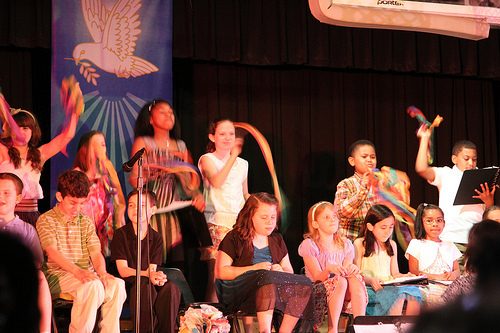
The Book
Barbara Robinson wrote a completely iconic holiday tale when she penned The Best Christmas Pageant Ever. It has all the right themes, a compelling cast of characters and so much humor it's impossible not to laugh the whole way through.
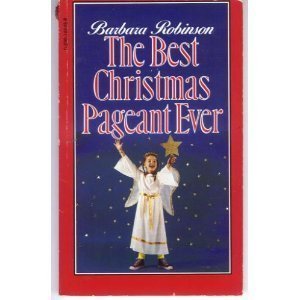
The story is told through the eyes of someone who isn't exactly a featured player, which is one of the things I find most compelling. You see, The Best Christmas Pageant Ever is actually about the Herdman kids, but we're hearing about this from someone else who is only observing them. That makes me feel more like I'm there, watching it all unfold. It's just the first thing I love about this book.
The Herdman kids, by the way, are the worst kids in the world. Imogene, Claude, Ralph, Leroy and Ollie are all terrible. Buy little Gladys, the youngest? She's the absolute worst. They're a pack of thieves, and liars, and bullies and just all-around wretched people. Even their cat is evil, a mangy creature so terrible it terrorizes the mailman.
One day the narrator's little brother makes the mistake of telling the Herdman kids that the church offers snacks, so of course they show up and end up being present for the meeting about the Christmas pageant. The church puts it on every year, and every year children from the congregation play every part.
One church member, usually one of the mothers, is in charge of the production. This year, it's our narrator's mother. Producing the Christmas pageant is a huge responsibility. And for those of you who don't know, a Christmas pageant basically tells the story of the birth of Jesus Christ as told in the Bible. Traditionally, this means you'll see shepherds keeping watch in their fields and noticing a star. You'll see weary Mary and Joseph being turned away at the inn and banished into the stables. You'll see the three wise men arrive with their gifts, and you'll be listening to a choir sing the whole time (the heavenly host). So you can see how important all of this would be, seeing as how the Christmas pageant occurs in front of a group of church-going folk on Christmas Eve.
That's why it's a huge problem when the Herdmans bully their way into the production, and get all the main roles. Right away it becomes obvious that this is going to be the worst Christmas pageant ever. The Herdmans have never before heard the story of Jesus's birth, and they become fascinated. The religious aspect of this book is not at all oft-putting. In fact, the Herdmans ask some pretty intelligent questions about the Biblical story -- stuff that's funny but also thought-provoking.

The Herdmans do change the Christmas pageant, invariably, but instead of making it the worst the production actually becomes the very best. It's a sweet story, and really funny, and it's perfect for the holidays. The Best Christmas Pageant Ever is a short read, so you really don't have an excuse not to dive in.
Unless you're afraid you'll want to watch the adaptation afterwards.
The Movie
It's one of my favorite books, but The Best Christmas Pageant Ever has been freely adapted on stage and I've rarely enjoyed it. I certainly didn't like the TV movie made in 1983. Loretta Swit plays Grace Bradley, who has been put in charge of the church's pageant. Some of the kids are rotated around, to look like more kids, but the story does follow the book pretty faithfully. Some of the dialogue is cut back and the narrator does not seem to be present at all, but this movie exists.
That's about all I can say for it. The adaptation really isn't a memorable one, and the story is much more often seen as a theatrical production. I'm waiting for someone to make a great adaptation of this book. If someone ever does, I'm convinced it will become a holiday classic.

The Book
Barbara Robinson wrote a completely iconic holiday tale when she penned The Best Christmas Pageant Ever. It has all the right themes, a compelling cast of characters and so much humor it's impossible not to laugh the whole way through.

The story is told through the eyes of someone who isn't exactly a featured player, which is one of the things I find most compelling. You see, The Best Christmas Pageant Ever is actually about the Herdman kids, but we're hearing about this from someone else who is only observing them. That makes me feel more like I'm there, watching it all unfold. It's just the first thing I love about this book.
The Herdman kids, by the way, are the worst kids in the world. Imogene, Claude, Ralph, Leroy and Ollie are all terrible. Buy little Gladys, the youngest? She's the absolute worst. They're a pack of thieves, and liars, and bullies and just all-around wretched people. Even their cat is evil, a mangy creature so terrible it terrorizes the mailman.
One day the narrator's little brother makes the mistake of telling the Herdman kids that the church offers snacks, so of course they show up and end up being present for the meeting about the Christmas pageant. The church puts it on every year, and every year children from the congregation play every part.
One church member, usually one of the mothers, is in charge of the production. This year, it's our narrator's mother. Producing the Christmas pageant is a huge responsibility. And for those of you who don't know, a Christmas pageant basically tells the story of the birth of Jesus Christ as told in the Bible. Traditionally, this means you'll see shepherds keeping watch in their fields and noticing a star. You'll see weary Mary and Joseph being turned away at the inn and banished into the stables. You'll see the three wise men arrive with their gifts, and you'll be listening to a choir sing the whole time (the heavenly host). So you can see how important all of this would be, seeing as how the Christmas pageant occurs in front of a group of church-going folk on Christmas Eve.
That's why it's a huge problem when the Herdmans bully their way into the production, and get all the main roles. Right away it becomes obvious that this is going to be the worst Christmas pageant ever. The Herdmans have never before heard the story of Jesus's birth, and they become fascinated. The religious aspect of this book is not at all oft-putting. In fact, the Herdmans ask some pretty intelligent questions about the Biblical story -- stuff that's funny but also thought-provoking.

The Herdmans do change the Christmas pageant, invariably, but instead of making it the worst the production actually becomes the very best. It's a sweet story, and really funny, and it's perfect for the holidays. The Best Christmas Pageant Ever is a short read, so you really don't have an excuse not to dive in.
Unless you're afraid you'll want to watch the adaptation afterwards.
The Movie
It's one of my favorite books, but The Best Christmas Pageant Ever has been freely adapted on stage and I've rarely enjoyed it. I certainly didn't like the TV movie made in 1983. Loretta Swit plays Grace Bradley, who has been put in charge of the church's pageant. Some of the kids are rotated around, to look like more kids, but the story does follow the book pretty faithfully. Some of the dialogue is cut back and the narrator does not seem to be present at all, but this movie exists.
That's about all I can say for it. The adaptation really isn't a memorable one, and the story is much more often seen as a theatrical production. I'm waiting for someone to make a great adaptation of this book. If someone ever does, I'm convinced it will become a holiday classic.
Published on December 14, 2013 05:30
December 12, 2013
Writing 101: Waiting
People ask me what I do for a living, and I tell them I'm a writer. They always think that's interesting, because these people who are asking don't actually know what it's like. What is it like to be a writer? It's like you're waiting. Every day, every second, you're always waiting for something. You're in suspense all the time, and you're worried half the time and the rest of the time...you're just exhausted.
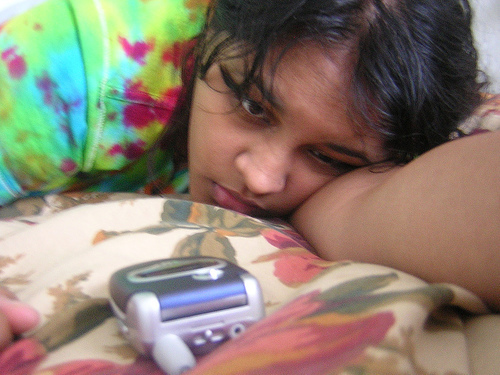
Patience Isn't a Virtue (It's a Chore)
You work and you work on a manuscript, until finally you manage to turn it into a book. You read it, admire it, worry about it and obsess over it. Finally, you work up your courage and you start sending out letters to agents and publishers. Or maybe you decide to go it alone, and you format your book so it can be self-published. Your heart races, and your adrenaline pumps and your fingers fly across the keys. Finally you hit that submit button. And then...you wait.
If you write, you're going to be waiting a lot. Some agents and publishers take weeks to answer you, if they do at all, and if they actually ask you for a sample of your book then you're going to pacing the floors for up to a month or more. And waiting for reviews to come in? I still feel a little anxious every time I check my Amazon pages. Waiting is part of being a writer, and that's difficult for me because I am not a patient person.
But through the years, I've managed to get used to playing the waiting game in all aspects of my career. Start preparing yourself now to wait after every bit of writing you do and you'll get used to it sooner. Even in the digital age, when you can trade emails with people instead of waiting for an envelope, you're going to have to wait. And unfortunately, a longer wait isn't always a better one. So start waiting now...because if you're serious about being a writer you're going to be doing it for the rest of your life.

Patience Isn't a Virtue (It's a Chore)
You work and you work on a manuscript, until finally you manage to turn it into a book. You read it, admire it, worry about it and obsess over it. Finally, you work up your courage and you start sending out letters to agents and publishers. Or maybe you decide to go it alone, and you format your book so it can be self-published. Your heart races, and your adrenaline pumps and your fingers fly across the keys. Finally you hit that submit button. And then...you wait.
If you write, you're going to be waiting a lot. Some agents and publishers take weeks to answer you, if they do at all, and if they actually ask you for a sample of your book then you're going to pacing the floors for up to a month or more. And waiting for reviews to come in? I still feel a little anxious every time I check my Amazon pages. Waiting is part of being a writer, and that's difficult for me because I am not a patient person.
But through the years, I've managed to get used to playing the waiting game in all aspects of my career. Start preparing yourself now to wait after every bit of writing you do and you'll get used to it sooner. Even in the digital age, when you can trade emails with people instead of waiting for an envelope, you're going to have to wait. And unfortunately, a longer wait isn't always a better one. So start waiting now...because if you're serious about being a writer you're going to be doing it for the rest of your life.
Published on December 12, 2013 05:30
December 11, 2013
Writing 101: Shock Value
A long time ago, people who wanted to sell papers would stand in the streets and shout the headlines. Sounds a bit crazy, sure, but just envision it for a moment. You're on your way to work, head still in a bit of a morning fog, and you hear someone cry "Killer Bees Heading This Way! Read all about it!" You're totally going to stop, right? Like, what's the point of rushing to work if you're going to potentially be fatally attacked by bees? What I'm really trying to share is this: shock value can be used to sell things.
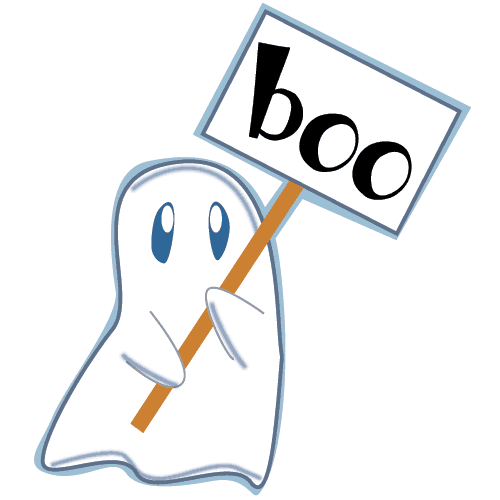
Boo!
It happens all the time, as a matter of fact. Remember the "your brain on drugs" commercials? How about the anti-texting commercials that make you feel terrible? The sad dog commercials where someone sings a horribly depressing song? Shock value. Certain ads are designed to shock your senses. They want to show you something so frightening, so depressing, so surprising that you react and you remember it. You can use that same technique in order to sell more books.
How do you cover up an imperfect murder? Find out in "Love's Last Kiss"
"Love's Last Kiss" available now at Amazon!
The two pitches above are examples of tweets that an indie author might send. Read them both. Which one is more compelling? Which one makes you want to click on the link to learn more? Shock value works. If you use something a little bit exciting, or titillating, or provocative, you offer something that's more entertaining. The more entertaining your pitch, the more likely it is that readers will check out your book (and allow you to entertain them a little longer).
Just don't take shock value too far. Many people have done this, and it always goes poorly. Stay just on the line of provocative, and avoid becoming offensive. It's okay to make your pitches more exciting, and you should. Just remember not to cross the line while you're doing it, and you will sell more books because of it.

Boo!
It happens all the time, as a matter of fact. Remember the "your brain on drugs" commercials? How about the anti-texting commercials that make you feel terrible? The sad dog commercials where someone sings a horribly depressing song? Shock value. Certain ads are designed to shock your senses. They want to show you something so frightening, so depressing, so surprising that you react and you remember it. You can use that same technique in order to sell more books.
How do you cover up an imperfect murder? Find out in "Love's Last Kiss"
"Love's Last Kiss" available now at Amazon!
The two pitches above are examples of tweets that an indie author might send. Read them both. Which one is more compelling? Which one makes you want to click on the link to learn more? Shock value works. If you use something a little bit exciting, or titillating, or provocative, you offer something that's more entertaining. The more entertaining your pitch, the more likely it is that readers will check out your book (and allow you to entertain them a little longer).
Just don't take shock value too far. Many people have done this, and it always goes poorly. Stay just on the line of provocative, and avoid becoming offensive. It's okay to make your pitches more exciting, and you should. Just remember not to cross the line while you're doing it, and you will sell more books because of it.
Published on December 11, 2013 05:30
December 10, 2013
Writing 101: We Can All Make Money with Self-Publishing
Being an indie author usually means eating a lot of noodles and salad for dinner, putting in long hours and maintaining a "day job" to boot. But if you aren't making money selling a lot of books, you shouldn't necessarily resign yourself to a life of noble poverty. There are many different ways to earn an income with self-publishing, and you never even have to write a word.

Money, Money, Money
Self-publishing has been going through a bit of a boom in recent years, and the authors definitely aren't making all the money. As the number of independently-published books has grown, so have the amount of services available to authors. There's a huge market out there for indies. Tap into it, and you can also make money in this newly-rediscovered industry.
Book editing: Lots of people use editing services to make their books letter-perfect. If you're detail-oriented and have plenty of time to scrutinize text, you may consider offering editing services. Beta reads: Less critical than reviewing and less tedious than book editing, beta reading allows you to read indie books even before they're self-published. Offer paid beta reading services and you could get swamped with highly imperfect books, so be aware of that risk before you invest your time in this. Paid reviews: You can always offer paid reviews as a service if you're a very good reviewer, but this can be a tough market because so many bloggers offer free reviews. But if you're reading a lot of books and offering thoughtful criticism, you may be entitled to make a little extra scratch on the side. Cover art: Designers offering cover art services can earn a decent amount of money if they're very good at what they do. If you've got artistic skills and good software, you may want to consider putting it to use.Promoter: If you're quite good at promoting, why not do something with it? Put together some marketing packages and start selling to indie authors.
Indie author services are highly in demand, and as the industry grows so will the services that go with it. Supplement your income by offering services to other indies. There are lots of different ways to be involved with writing, even if you don't write at all.

Money, Money, Money
Self-publishing has been going through a bit of a boom in recent years, and the authors definitely aren't making all the money. As the number of independently-published books has grown, so have the amount of services available to authors. There's a huge market out there for indies. Tap into it, and you can also make money in this newly-rediscovered industry.
Book editing: Lots of people use editing services to make their books letter-perfect. If you're detail-oriented and have plenty of time to scrutinize text, you may consider offering editing services. Beta reads: Less critical than reviewing and less tedious than book editing, beta reading allows you to read indie books even before they're self-published. Offer paid beta reading services and you could get swamped with highly imperfect books, so be aware of that risk before you invest your time in this. Paid reviews: You can always offer paid reviews as a service if you're a very good reviewer, but this can be a tough market because so many bloggers offer free reviews. But if you're reading a lot of books and offering thoughtful criticism, you may be entitled to make a little extra scratch on the side. Cover art: Designers offering cover art services can earn a decent amount of money if they're very good at what they do. If you've got artistic skills and good software, you may want to consider putting it to use.Promoter: If you're quite good at promoting, why not do something with it? Put together some marketing packages and start selling to indie authors.
Indie author services are highly in demand, and as the industry grows so will the services that go with it. Supplement your income by offering services to other indies. There are lots of different ways to be involved with writing, even if you don't write at all.
Published on December 10, 2013 05:30
December 9, 2013
Writing 101: Responding to Reviews
Lots of indie authors who like to give advice will tell you not to respond to reviews when you get them, particularly the negative ones. I'm not one of those authors. Responding to reviews isn't just a good idea -- it's your duty.
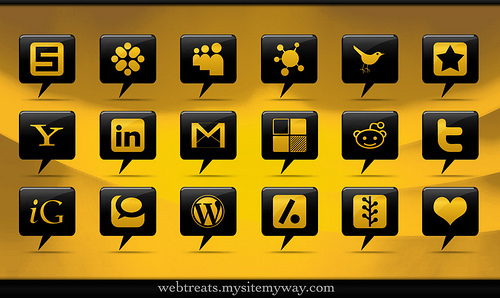
Thank You Cards
When I was little, I had to write thank you cards for everything. Birthday, Christmas, Easter baskets -- I was told to say thanks for it all. I hated it, and swore I would never deal with that nonsense again once I became adult.
And now, I'm going to tell you to do the same thing I hated to do when I was a kid. I want you to write your reviewers, and say thank you. Because you do have to respond, even to the really ugly reviews, and the response is always the same: thank you.
Euphemisms
I'm not suggesting that you leave a comment on every Amazon and Goodreads review you get (though it can't hurt), but I am saying outright that you should email every book blogger who features you on their blog. Most of the time, they'll email you to let you know the review is live (so you can promote it for them). This makes it easy -- just hit reply, say thank you, and move on. Otherwise, you might have to dig around on the site to find the blogger's email information.
Do it every time. You show your appreciation because you're probably going to write another book one day. If you want it reviewed, build a better relationship with book bloggers. Say thanks for the review...even when what you really want to say is thanks for ripping my book to shreds.
You're not always going to want to say thank you, or anything at all, and if you do say something you may be in danger of making a nasty remark. Not all book reviews are good, and it's not always easy to be gracious. That's why you should keep your response simple, and standard, for every review. Don't try to come up with new responses. Keep using the same one. Something along the lines of thanks for reading and reviewing my book does nicely for the good reviews and the bad. Show grace under fire, say thank you, and you'll get lots more readers and reviewers.

Thank You Cards
When I was little, I had to write thank you cards for everything. Birthday, Christmas, Easter baskets -- I was told to say thanks for it all. I hated it, and swore I would never deal with that nonsense again once I became adult.
And now, I'm going to tell you to do the same thing I hated to do when I was a kid. I want you to write your reviewers, and say thank you. Because you do have to respond, even to the really ugly reviews, and the response is always the same: thank you.
Euphemisms
I'm not suggesting that you leave a comment on every Amazon and Goodreads review you get (though it can't hurt), but I am saying outright that you should email every book blogger who features you on their blog. Most of the time, they'll email you to let you know the review is live (so you can promote it for them). This makes it easy -- just hit reply, say thank you, and move on. Otherwise, you might have to dig around on the site to find the blogger's email information.
Do it every time. You show your appreciation because you're probably going to write another book one day. If you want it reviewed, build a better relationship with book bloggers. Say thanks for the review...even when what you really want to say is thanks for ripping my book to shreds.
You're not always going to want to say thank you, or anything at all, and if you do say something you may be in danger of making a nasty remark. Not all book reviews are good, and it's not always easy to be gracious. That's why you should keep your response simple, and standard, for every review. Don't try to come up with new responses. Keep using the same one. Something along the lines of thanks for reading and reviewing my book does nicely for the good reviews and the bad. Show grace under fire, say thank you, and you'll get lots more readers and reviewers.
Published on December 09, 2013 05:30
December 7, 2013
Books on Film: Rudolph the Red-Nosed Reindeer
Rudolph is probably the most popular reindeer in Christmas culture. He's the only one with his own song, and it's a pretty popular one, to boot. You can't get through the holiday season without seeing Rudolph's special on TV or hearing his song. But both were actually based on a book. And here's the surprising part: Rudolph isn't even 100 years old yet.
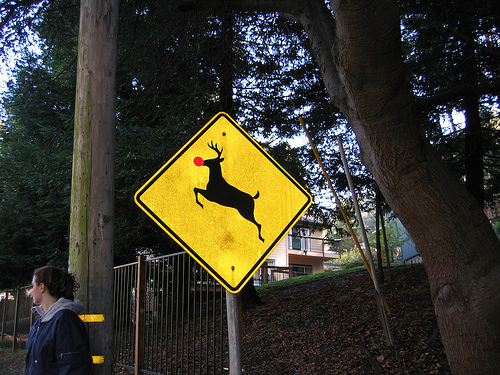
The Book
Rudolph wasn't even a part of Christmas until 1939. The original story was written by Robert L. May, and today his little tale of a red-nose reindeer has become a part of the holiday celebrations around the globe. Pretty heady stuff, right?
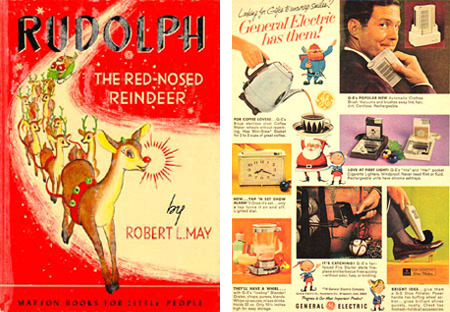
He wrote the story under assignment, as a project for retailer Montgomery Ward. They'd been buying coloring books to give away every Christmas, and found that it was cheaper to simply create their own books for distribution. May almost named his reindeer Reginald, according to legend, and had to talk his boss into the idea of a reindeer with a red nose. Montgomery Ward distributed 2.5 million copies that first Christmas.
In the story, Rudolph is born with a glowing red nose that's different from the other deer. For this he is ridiculed and ostracized. But when Santa asks Rudolph to lead his sleigh one Christmas Eve, Rudolph is re-branded as a hero.
Simple story, very easy to relate to, memorable character. May hit a grand-slam with Rudolph. The story inspired the song, and the song is a prominent feature of every single holiday season. It was a number one Billboard hit in 1949 and it's been repeated every December. The song was released in 1949. It was the second best-selling album until the 1980s.
Rudolph's story became even more popular when it became a TV special. It's so popular, it re-appears every year...and it was made back in 1964.
The Movie
You know the special I'm talking about. It's a stop-animation marvel that gives Rudolph an entirely new backstory. In this story, he runs away from home and meets a misfit elf who also doesn't belong. On their journey they find an entire island of misfit toys and run afoul of the Abominable Snowman.
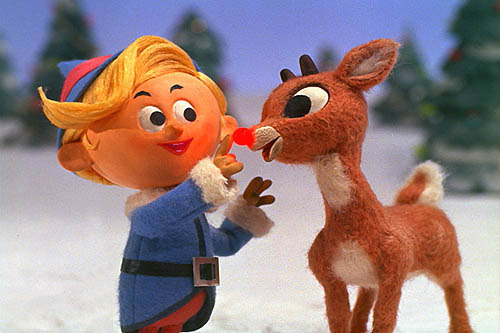
It's the same every year...now. But after the first broadcast, the story was changed. At the end, Santa drops the misfit toys down to the houses. Originally, he was dropping wrapped presents. This change was prompted by the viewers, who wanted to know what happened to the toys. You can see the characters from the movie in the 2001 special, Rudolph the Red-Nosed Reindeer and the Island of Misfit Toys.
The character Rudolph turns 75 this holiday season. The 1964 special is the longest-running Christmas special in TV. And now you know that it's also a book, a story written by one guy with a boss and a job. Maybe Christmas miracles really do happen after all.

The Book
Rudolph wasn't even a part of Christmas until 1939. The original story was written by Robert L. May, and today his little tale of a red-nose reindeer has become a part of the holiday celebrations around the globe. Pretty heady stuff, right?

He wrote the story under assignment, as a project for retailer Montgomery Ward. They'd been buying coloring books to give away every Christmas, and found that it was cheaper to simply create their own books for distribution. May almost named his reindeer Reginald, according to legend, and had to talk his boss into the idea of a reindeer with a red nose. Montgomery Ward distributed 2.5 million copies that first Christmas.
In the story, Rudolph is born with a glowing red nose that's different from the other deer. For this he is ridiculed and ostracized. But when Santa asks Rudolph to lead his sleigh one Christmas Eve, Rudolph is re-branded as a hero.
Simple story, very easy to relate to, memorable character. May hit a grand-slam with Rudolph. The story inspired the song, and the song is a prominent feature of every single holiday season. It was a number one Billboard hit in 1949 and it's been repeated every December. The song was released in 1949. It was the second best-selling album until the 1980s.
Rudolph's story became even more popular when it became a TV special. It's so popular, it re-appears every year...and it was made back in 1964.
The Movie
You know the special I'm talking about. It's a stop-animation marvel that gives Rudolph an entirely new backstory. In this story, he runs away from home and meets a misfit elf who also doesn't belong. On their journey they find an entire island of misfit toys and run afoul of the Abominable Snowman.

It's the same every year...now. But after the first broadcast, the story was changed. At the end, Santa drops the misfit toys down to the houses. Originally, he was dropping wrapped presents. This change was prompted by the viewers, who wanted to know what happened to the toys. You can see the characters from the movie in the 2001 special, Rudolph the Red-Nosed Reindeer and the Island of Misfit Toys.
The character Rudolph turns 75 this holiday season. The 1964 special is the longest-running Christmas special in TV. And now you know that it's also a book, a story written by one guy with a boss and a job. Maybe Christmas miracles really do happen after all.
Published on December 07, 2013 05:30
December 5, 2013
Writing 101: Is It Ever Okay to Stop Writing?
You know those websites that feature trite advice from famous authors? I invariably end up focusing on the quotes where the authors say that you have to write every day to really be a writer. I don't do that. Does that mean I'm not a real writer? When is it okay to stop writing, to take a break from creating new books?

Writer's Block in Rebel's Clothing?
So what if you're not just not feeling your story one day? What if you're just not inspired? Or maybe you're very busy, or sick, and you don't manage to get anything done. Suddenly now you're not a real author?
I don't think so. Sometimes I don't want to write a thing, not even a tweet, so I don't. Since I spend about 8 to 12 hours a day at my keyboard, I think I have the right to do that. But I also think there's a line to be drawn.
If you finish a book, or maybe you need a break from a book, then take some time. Spend a few days, a week or two even, ruminating over new ideas and enjoying the freedom of not having a deadline or a writing schedule hanging around your neck.
Spend more than that not writing, and you may not be exercising your freedom and resting your creative muscles. You might be a victim of writer's block. Authors are creative people, and I've found that new story ideas pop into my head whether I want them to or not. If I spend a few days not working on a story, I start to feel an itch. I start imagining scenes. Soon I find myself with some device in my hand, accessing my cloud, poring over materials.
When that urge isn't striking you and you're going longer and longer without writing, you need to start asking yourself why. I once had writer's block for about two years, and it was pretty ugly. I didn't even want to write, and when I tried I couldn't focus on anything or stick to any project. I have like four half-started books from that time period. I can't really bring myself to look at them. I wasn't resting or taking a break. I was afraid.
I finally figured that out, and I wrote five books to put that period of my life behind me. But even after I didn't work on any books for two years, I was still an author. And you're still going to be who you are no matter how long you go without writing. But if you go for an extended time without words, start asking yourself why. Try to figure out what's going on, and try to bring yourself out of it. Because an author can choose not to write, or become afraid to do so, but not writing is much more painful than writing -- even if you're writing badly. When the words want to come out, you should always find a way to let them.

Writer's Block in Rebel's Clothing?
So what if you're not just not feeling your story one day? What if you're just not inspired? Or maybe you're very busy, or sick, and you don't manage to get anything done. Suddenly now you're not a real author?
I don't think so. Sometimes I don't want to write a thing, not even a tweet, so I don't. Since I spend about 8 to 12 hours a day at my keyboard, I think I have the right to do that. But I also think there's a line to be drawn.
If you finish a book, or maybe you need a break from a book, then take some time. Spend a few days, a week or two even, ruminating over new ideas and enjoying the freedom of not having a deadline or a writing schedule hanging around your neck.
Spend more than that not writing, and you may not be exercising your freedom and resting your creative muscles. You might be a victim of writer's block. Authors are creative people, and I've found that new story ideas pop into my head whether I want them to or not. If I spend a few days not working on a story, I start to feel an itch. I start imagining scenes. Soon I find myself with some device in my hand, accessing my cloud, poring over materials.
When that urge isn't striking you and you're going longer and longer without writing, you need to start asking yourself why. I once had writer's block for about two years, and it was pretty ugly. I didn't even want to write, and when I tried I couldn't focus on anything or stick to any project. I have like four half-started books from that time period. I can't really bring myself to look at them. I wasn't resting or taking a break. I was afraid.
I finally figured that out, and I wrote five books to put that period of my life behind me. But even after I didn't work on any books for two years, I was still an author. And you're still going to be who you are no matter how long you go without writing. But if you go for an extended time without words, start asking yourself why. Try to figure out what's going on, and try to bring yourself out of it. Because an author can choose not to write, or become afraid to do so, but not writing is much more painful than writing -- even if you're writing badly. When the words want to come out, you should always find a way to let them.
Published on December 05, 2013 05:30
December 4, 2013
Writing 101: How Scary is Your Search History?
It’s possible I’ve been flagged as a serial killer.
I’m really not one of those conspiracy theorists who believes the government is secretly behind every major event, but sometimes I do worry about my search engine history. I know that Google keeps track of the stuff I’m looking up, so it feels totally within the realm of possibility that the government may also have this sort of power. The government probably doesn’t have as much money as Google, or anything, but I’m pretty sure they can make Google give them information.
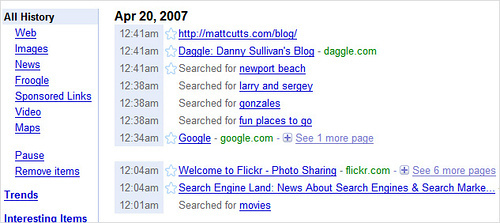
Getting Weird with Google
And if they can, it’s possible that my name is on somebody’s list somewhere…because I look up extremely strange stuff on Google.
I got to thinking about it the other day when I looked for authors who committed suicide, the same night I was searching for information about electronic toys. I've searched for information about legal proceedings, how to get blood out of leather, Christmas decorations, and Will Ferrell in the same week.
To the outside observer, it probably all looks pretty strange. Looking up information about small towns, suicide statistics and quiet ways to kill people seems a little psychotic. And if, by some chance, the government also knows that I watch a bizarre mixture of shows about murder, game shows and Hallmark Channel Christmas movies....let's just say that I wouldn't blame anybody for putting my name on a list.
It looks a little bit crazy, but some of it is done in the name of research. If I write murder mysteries, I need to know a thing or two about bloodstains and efficient means of getting rid of a body. If I'm also interested in Will Ferrell's life and I need a few stats in order to write a better blog post...well, that Internet is made to answer questions about people like Will Ferrell.
How scary, strange or just plain weird is your search history? As an author, you're bound to collect a bizarre collection of queries. You may also need to explain this to anyone who happens to see what you've been studying. Don't worry. A simple "I'm a writer" can explain away a whole lot of strange behavior.
I’m really not one of those conspiracy theorists who believes the government is secretly behind every major event, but sometimes I do worry about my search engine history. I know that Google keeps track of the stuff I’m looking up, so it feels totally within the realm of possibility that the government may also have this sort of power. The government probably doesn’t have as much money as Google, or anything, but I’m pretty sure they can make Google give them information.

Getting Weird with Google
And if they can, it’s possible that my name is on somebody’s list somewhere…because I look up extremely strange stuff on Google.
I got to thinking about it the other day when I looked for authors who committed suicide, the same night I was searching for information about electronic toys. I've searched for information about legal proceedings, how to get blood out of leather, Christmas decorations, and Will Ferrell in the same week.
To the outside observer, it probably all looks pretty strange. Looking up information about small towns, suicide statistics and quiet ways to kill people seems a little psychotic. And if, by some chance, the government also knows that I watch a bizarre mixture of shows about murder, game shows and Hallmark Channel Christmas movies....let's just say that I wouldn't blame anybody for putting my name on a list.
It looks a little bit crazy, but some of it is done in the name of research. If I write murder mysteries, I need to know a thing or two about bloodstains and efficient means of getting rid of a body. If I'm also interested in Will Ferrell's life and I need a few stats in order to write a better blog post...well, that Internet is made to answer questions about people like Will Ferrell.
How scary, strange or just plain weird is your search history? As an author, you're bound to collect a bizarre collection of queries. You may also need to explain this to anyone who happens to see what you've been studying. Don't worry. A simple "I'm a writer" can explain away a whole lot of strange behavior.
Published on December 04, 2013 05:30
December 3, 2013
Writing 101: Is It Hopeless?
You know those completely delusional singers on American Idol who are the worst of the worst, yet they think they're totally amazing? Have you ever wondered...if that's you? Sometimes questions pop into my mind, and they give me new story ideas. Sometimes they pop into my head and I wonder...is it hopeless?
Where's Paula Abdul When You Need Her?
Wouldn't it be great if there was an American Idol for authors? You could go in and read your blurb, maybe the first page of your novel, and Simon Cowell could tell you that you're fantastic and you're going to Hollywood. What for, I don't know. I haven't worked out all the details of the show yet (American Writer), but that's not the point. The point is this: when you're an author, everyone is Simon Cowell.
Emily Dickinson was a recluse who, literally, sat in her room and wrote about death. I'm not just writing that to be colorful. Sylvia Plath achieved a fair amount of success as a poet, wrote a popular novel, and stuck her head in the oven one day. Ernest Hemingway, well-known in his own lifetime, put a shotgun to his own head. Virginia Woolf put rocks in her pockets and walked into the River Ouse.
Here's what I'm saying: writing is dark sometimes. You have to wallow around in the ugliest part of the human condition, in some cases, really dive into terrible thoughts and emotions. Every good story needs a villain...and it's always you. You're the one who tortures the characters, you're the one who kills them, you're the one who creates it all...and you're the one who will feel all the criticism with terrible keenness.
Rejection letters come in the mail when you try to be traditional. Bad reviews and hurtful comments show up when you go an indie route. Family members won't read when they promised they would. Deals fall through, and cover artists may fail to capture the right concept. Things are going to get rough no matter which path you choose.
At times, it might all start to feel really hopeless. You might start wondering if you're any good at writing at all, or if you're just that totally delusional idiot butchering some once-popular song in front of Simon Cowell. You're too busy pouring your heart into the performance to notice how often he's rolling his eyes.
There's an easy answer: you're totally that delusional singing guy. You have to be a little delusional to be an author. It's all quite arrogant, really, isn't it? You think you've got something so important to say that potentially millions will want to read it, not once but over and over again? That's delusional, and it's fantastic. It's one of the best things about you, about any author. And the world is full of Simon Cowells. There are going to be lots of readers, agents, publishers and family members who don't like your book. But if you put yourself into it, and put the work into it, there will be readers who do.
And if there is even one person who wants to read your book and does read it, then it isn't hopeless. You may never get rich and famous, and odds say you certainly won't, but a single tweet from a real fan can take the pain out of a whole lot of rejection slips.
Where's Paula Abdul When You Need Her?
Wouldn't it be great if there was an American Idol for authors? You could go in and read your blurb, maybe the first page of your novel, and Simon Cowell could tell you that you're fantastic and you're going to Hollywood. What for, I don't know. I haven't worked out all the details of the show yet (American Writer), but that's not the point. The point is this: when you're an author, everyone is Simon Cowell.
Emily Dickinson was a recluse who, literally, sat in her room and wrote about death. I'm not just writing that to be colorful. Sylvia Plath achieved a fair amount of success as a poet, wrote a popular novel, and stuck her head in the oven one day. Ernest Hemingway, well-known in his own lifetime, put a shotgun to his own head. Virginia Woolf put rocks in her pockets and walked into the River Ouse.
Here's what I'm saying: writing is dark sometimes. You have to wallow around in the ugliest part of the human condition, in some cases, really dive into terrible thoughts and emotions. Every good story needs a villain...and it's always you. You're the one who tortures the characters, you're the one who kills them, you're the one who creates it all...and you're the one who will feel all the criticism with terrible keenness.
Rejection letters come in the mail when you try to be traditional. Bad reviews and hurtful comments show up when you go an indie route. Family members won't read when they promised they would. Deals fall through, and cover artists may fail to capture the right concept. Things are going to get rough no matter which path you choose.
At times, it might all start to feel really hopeless. You might start wondering if you're any good at writing at all, or if you're just that totally delusional idiot butchering some once-popular song in front of Simon Cowell. You're too busy pouring your heart into the performance to notice how often he's rolling his eyes.
There's an easy answer: you're totally that delusional singing guy. You have to be a little delusional to be an author. It's all quite arrogant, really, isn't it? You think you've got something so important to say that potentially millions will want to read it, not once but over and over again? That's delusional, and it's fantastic. It's one of the best things about you, about any author. And the world is full of Simon Cowells. There are going to be lots of readers, agents, publishers and family members who don't like your book. But if you put yourself into it, and put the work into it, there will be readers who do.
And if there is even one person who wants to read your book and does read it, then it isn't hopeless. You may never get rich and famous, and odds say you certainly won't, but a single tweet from a real fan can take the pain out of a whole lot of rejection slips.
Published on December 03, 2013 05:30
December 2, 2013
Writing 101: Reinventing Yourself
You know how they say that once you learn how to ride a bike, you never forget? Writing a book is like that. Once you know how, you can always write another book. That's why when you're an author, reinventing yourself is easy. Well, sort of. My point is this: you can always reinvent yourself.
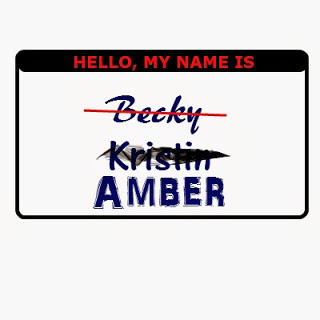
Starting Over
When you're an author, you can always start over if need be -- especially if you're going to be an indie. As an indie author, you control everything. You're in charge of your
It's not easy to start from scratch, and it will take months and even years for you to build up a fan base from nothing at all. But you're an author, so you know how to build a new character better than anyone.
Reinventing yourself and starting all over again is a huge step, but there are a few reasons why you might want to do this.
Bad reputation: If you've got a reputation for producing poorly-edited books or being incendiary in forums, you might have trouble selling your work. You may want to re-brand yourself to get a new reputation.Change of pace: If you're changing genres, it may be a wise decision to start from scratch with a new pen name and build up a brand-new fan base.Going it alone: If you traditionally published in the past and now you want to self-publish and be completely independent, it may be appropriate to start fresh with a new name. You're starting fresh anyway as an indie, so why not give yourself a clean slate while you're at it?
Starting over isn't easy, but sometimes it's necessary or desirable. Be prepared to work hard and to be patient, because results happen slowly over time. If you work at it regularly, you will build a fan base and establish yourself under your new name. Reinventing yourself is always an option, so don't ever forget it.

Starting Over
When you're an author, you can always start over if need be -- especially if you're going to be an indie. As an indie author, you control everything. You're in charge of your
It's not easy to start from scratch, and it will take months and even years for you to build up a fan base from nothing at all. But you're an author, so you know how to build a new character better than anyone.
Reinventing yourself and starting all over again is a huge step, but there are a few reasons why you might want to do this.
Bad reputation: If you've got a reputation for producing poorly-edited books or being incendiary in forums, you might have trouble selling your work. You may want to re-brand yourself to get a new reputation.Change of pace: If you're changing genres, it may be a wise decision to start from scratch with a new pen name and build up a brand-new fan base.Going it alone: If you traditionally published in the past and now you want to self-publish and be completely independent, it may be appropriate to start fresh with a new name. You're starting fresh anyway as an indie, so why not give yourself a clean slate while you're at it?
Starting over isn't easy, but sometimes it's necessary or desirable. Be prepared to work hard and to be patient, because results happen slowly over time. If you work at it regularly, you will build a fan base and establish yourself under your new name. Reinventing yourself is always an option, so don't ever forget it.
Published on December 02, 2013 05:30



